Arguing the World: A ‘Conversation’
Sparks flew at the civil and witty “Conversation” between Rabbi Adin Steinsaltz and Natan Sharansky at the June 2 Aleph Society dinner at the Essex House. When moderator Charles Krauthammer expressed astonishment at the return of antisemitism 50 years after the Holocaust, Steinsaltz — author of 60 books on the Talmud, Jewish mysticism and philosophy — explained it as “an aberration of a more than 2,000-year old… malady endemic to a world that does not need Jews to inflame it.”
Sharansky, former Soviet refusenik and now Israel’s minister for Jerusalem and Diaspora affairs, concurred: “Antisemitism is as old as the Jews…. [Theodor] Herzl believed if we built a Jewish state, antisemitism would disappear.”
Recalling Soviet antisemitism, Sharansky added wistfully: “We hoped democracy would save us [from antisemitism] but… democracy failed.”
Responding to Steinsaltz’s claim that “Jews are like eggs, the more you boil them, the harder they become,” Krauthammer joshed: “Then we should be very well done by now.”
Apropos tension between religion and secularism in Israel, Steinsaltz explained: “The founding fathers of Israel were atheists… In Israel, you have to be very careful when you [say] ‘God’…. The [early] leaders of Israel did not believe in God, but believed God gave Palestine as a gift to the Jewish people.… The Bible is not divine, but [they] were sure the Bible was the highest authority for our right to Eretz Israel…. [Their] dream was to create a new person… a Jewish goy — not clever, not sophisticated — like a Russian peasant…. To create a hybrid — part Rambam, part Spartacus.”
“We have Israelis instead of Jews,” Sharansky added. “If you speak Hebrew and serve in the army, it is the beginning and end of your Jewishness.”
Steinsaltz replied: “Serving in the army and speaking Hebrew is a Druze — a definition of a good Israeli citizen. It’s not… being a Jew…. The real tension is, are we building a Jewish state or a state for the Jews where Jews will be tolerated?”
* * *|
There was class and shtick at the Folksbiene Yiddish Theatre’s June 4 “An American Treasure” gala concert at the 92nd Street Y.
Produced by Moishe Rosenfeld and Folksbiene executive director Zalmen Mlotek, the crowd-pleasing event exploded with the three 6- foot-tall Finkels — Elliot at the piano, brother Ian with his magic mallets on the xylophone and pappa, octogenarian Fyvush, hoofing it up with Second Avenue brio.
Master of ceremonies Alan King recalled: “I was born on December 25 on the Lower East Side in a manger. There was no sheep… but carp in the bathtub.”
And with Catskillian panache, he boasted: “My ego is as big as my prostate.”
Vintage Yiddish film clips alternated with a program that included soprano Nell Snaidas and tenor Richard Slade in a bravo-eliciting duet from Abraham Goldfadden’s Yiddish operetta “Shulamis”; Adrienne Cooper and ensemble in excerpts from “Ghetto Cabaret,” a montage of wartime Yiddish theater songs; Joanne Borts and the kids from “Kids and Yiddish,” and solo turns by Claire Barry, Mike Burstyn, Eleanor Reissa and Theodore Bikel.
Folksbiene board member Charlie Rose introduced Bialystok-born honoree Leo Melamed, chairman emeritus of the Chicago Mercantile Exchange. Melamed — who at age 7 attended my birthday party in 1940 in Vilna — recalled his first Yiddish theater experience. Sholom Ansky’s “The Dybbuk” was “a gift that would last a lifetime that my father gave me in August 1939.”
In a riveting delivery and delicious Yiddish, Melamed read Kadia Molodowska’s poem, “A Dark Cloth Coat.” Folksbiene board member Jeff Wiesenfeld introduced the evening’s second honoree, architect Daniel Libeskind.
Libeskind, a son of Holocaust survivors and a Camp Hemshekh alumnus, told the crowd: “I come from the Yiddish world.” While designing the Jewish Museum in Berlin, Libeskind revealed that “instead of learning German, I decided to improve my Yiddish.”
* * *|
The May 29 American Friends of the Tel Aviv Museum “Gala of the Arts” at the Rainbow Room honored philanthropists Irma and Paul Milstein, artist Sol LeWitt and art patron Stanley Batkin.
“Tel Aviv is the cultural capital of Israel,” Mayor Ron Huldai, of Tel Aviv-Yafo said to the 270 guests who raised more than $500,000 for the museum. Huldai emphasized: “Art is not a luxury. It is bread for the soul…. In the face of terrorist attacks… in a time of great stress when few tourists come to Israel, visitors to the museum did not drop…. We need a taste of life…. of being open to and part of the world.”
* * *|
The star attraction at the May 20 Jewish Braille Institute’s 70th anniversary dinner, emceed by Larry King at the Metropolitan Club, was 24-year-old mezzo soprano Laurie Rubin, accompanied on piano by Marvin Hamlisch.
Born blind, Rubin told the 267 guests who helped raise $1.1 million that “JBI was instrumental to my Jewish education and singing career.” JBI president and event honoree Barbara Friedman and her husband, Stephen (director of the National Economic Council and assistant to President Bush for economic policy), established a $1 million endowment for the Barbara and Stephen Friedman Talking Books Library.
The Forward is free to read, but it isn’t free to produce

I hope you appreciated this article. Before you go, I’d like to ask you to please support the Forward.
Now more than ever, American Jews need independent news they can trust, with reporting driven by truth, not ideology. We serve you, not any ideological agenda.
At a time when other newsrooms are closing or cutting back, the Forward has removed its paywall and invested additional resources to report on the ground from Israel and around the U.S. on the impact of the war, rising antisemitism and polarized discourse.
This is a great time to support independent Jewish journalism you rely on. Make a gift today!
— Rachel Fishman Feddersen, Publisher and CEO
Support our mission to tell the Jewish story fully and fairly.
Most Popular
- 1

Culture Trump wants to honor Hannah Arendt in a ‘Garden of American Heroes.’ Is this a joke?
- 2

Opinion The dangerous Nazi legend behind Trump’s ruthless grab for power
- 3
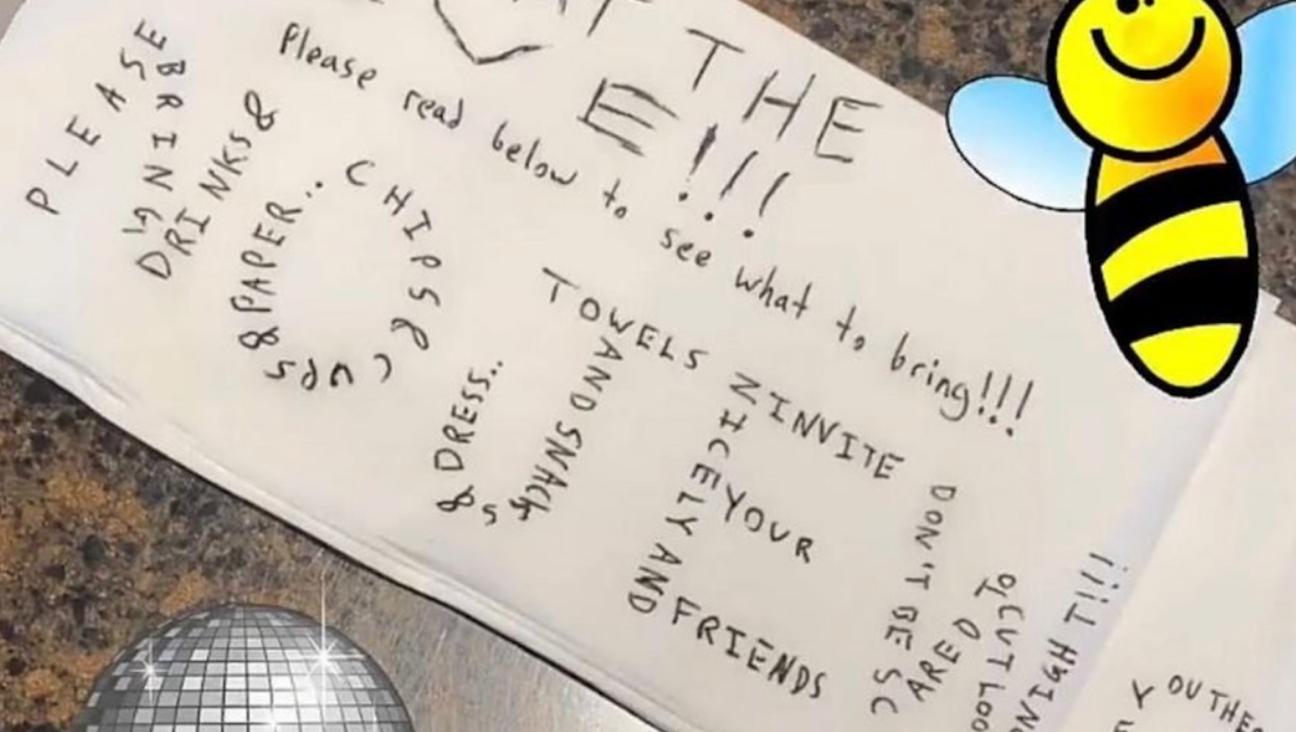
Fast Forward The invitation said, ‘No Jews.’ The response from campus officials, at least, was real.
- 4

Opinion A Holocaust perpetrator was just celebrated on US soil. I think I know why no one objected.
In Case You Missed It
-
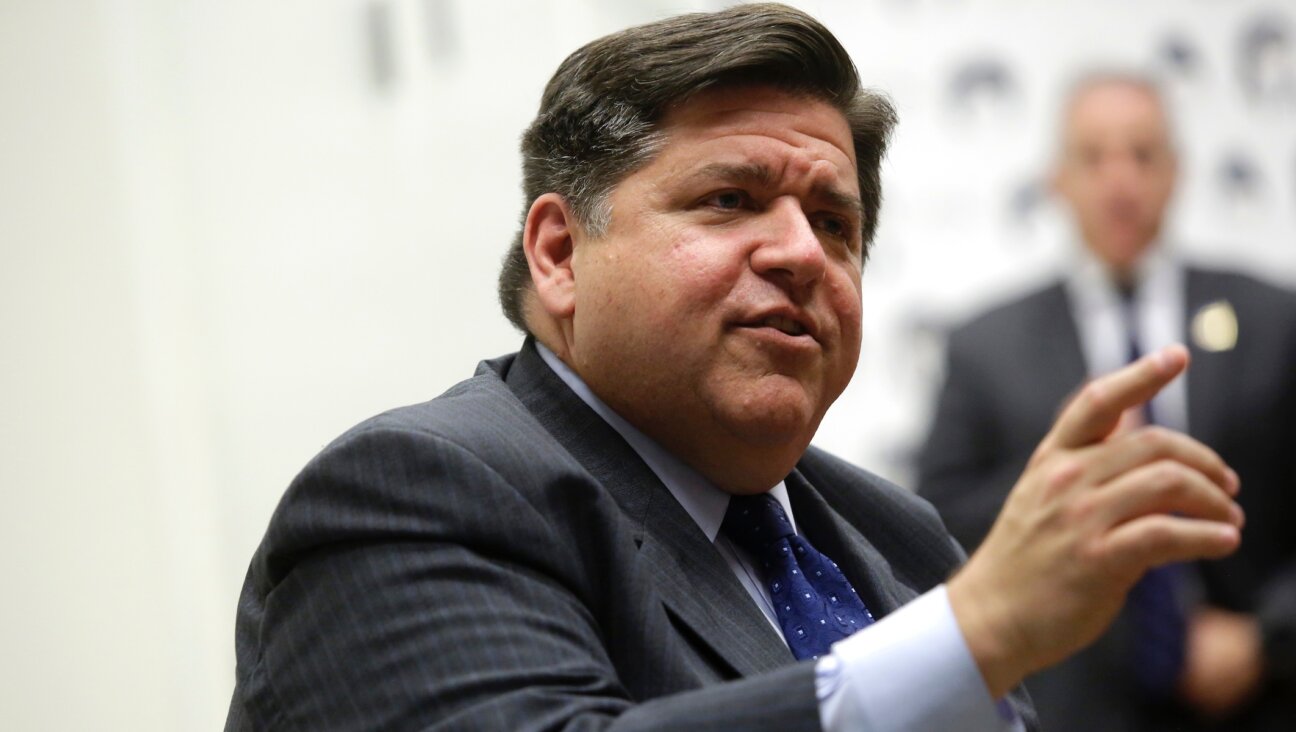
Fast Forward J.B. Pritzker accuses Trump of ‘disparaging the very foundation of Judaism’
-
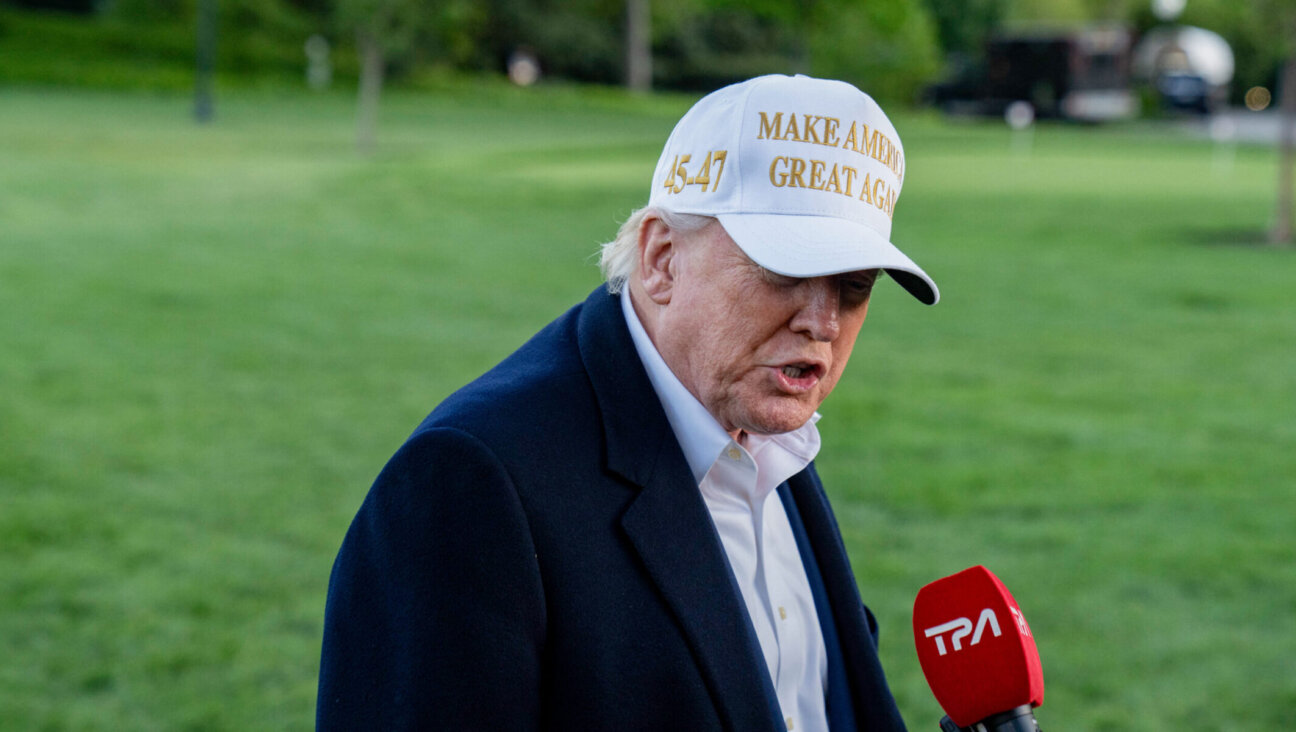
Fast Forward Trump on Iran: ‘If we don’t make a deal, I’ll be leading the pack’ into war
-
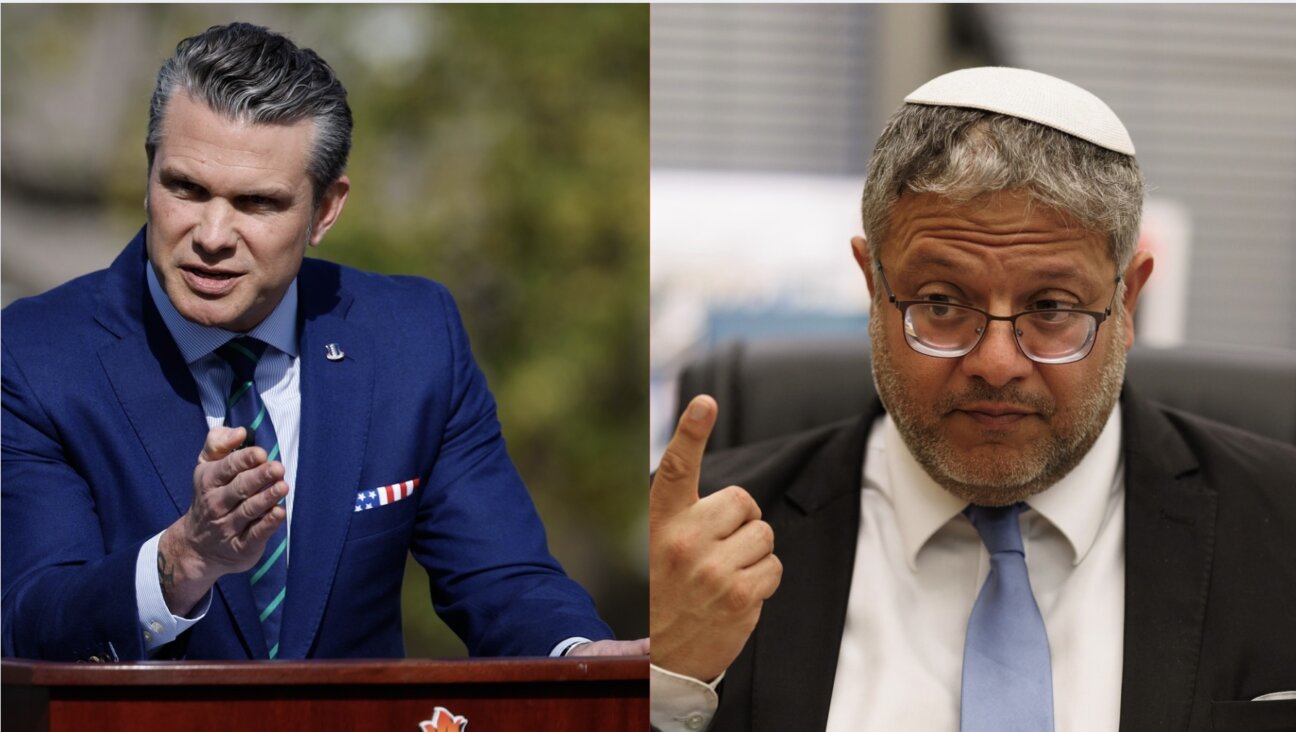
Opinion No, Pete Hegseth and Itamar Ben-Gvir don’t look alike — but that’s where the differences end
-
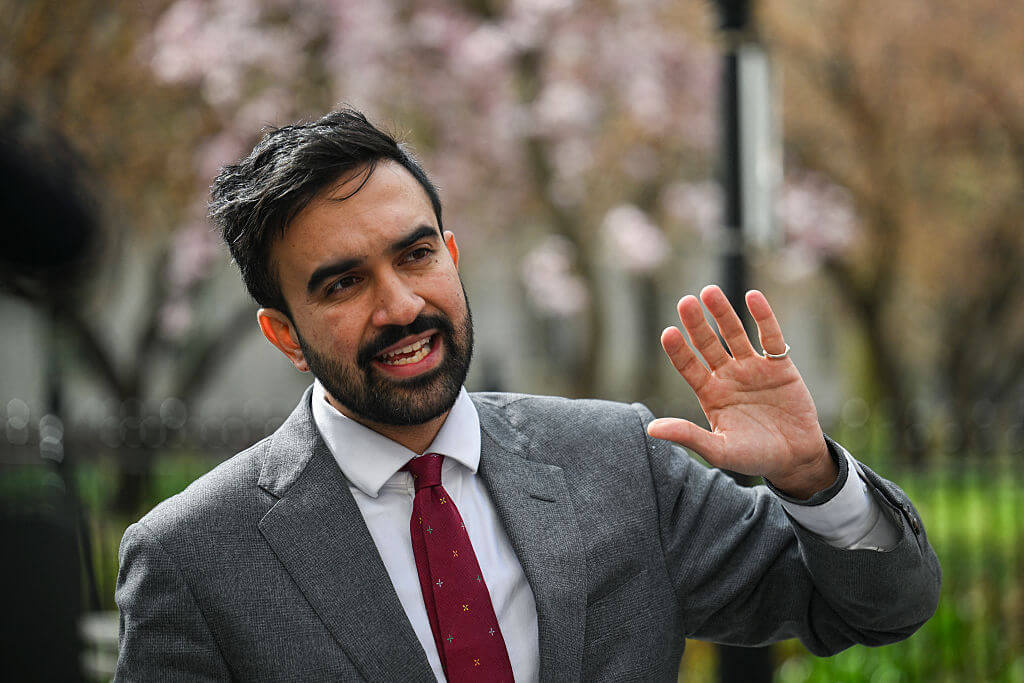
News Why Zohran Mamdani believes he’ll win over Jewish voters, as Israel critic surges to second behind Cuomo in NYC mayoral race
-
Shop the Forward Store
100% of profits support our journalism
Republish This Story
Please read before republishing
We’re happy to make this story available to republish for free, unless it originated with JTA, Haaretz or another publication (as indicated on the article) and as long as you follow our guidelines.
You must comply with the following:
- Credit the Forward
- Retain our pixel
- Preserve our canonical link in Google search
- Add a noindex tag in Google search
See our full guidelines for more information, and this guide for detail about canonical URLs.
To republish, copy the HTML by clicking on the yellow button to the right; it includes our tracking pixel, all paragraph styles and hyperlinks, the author byline and credit to the Forward. It does not include images; to avoid copyright violations, you must add them manually, following our guidelines. Please email us at [email protected], subject line “republish,” with any questions or to let us know what stories you’re picking up.















